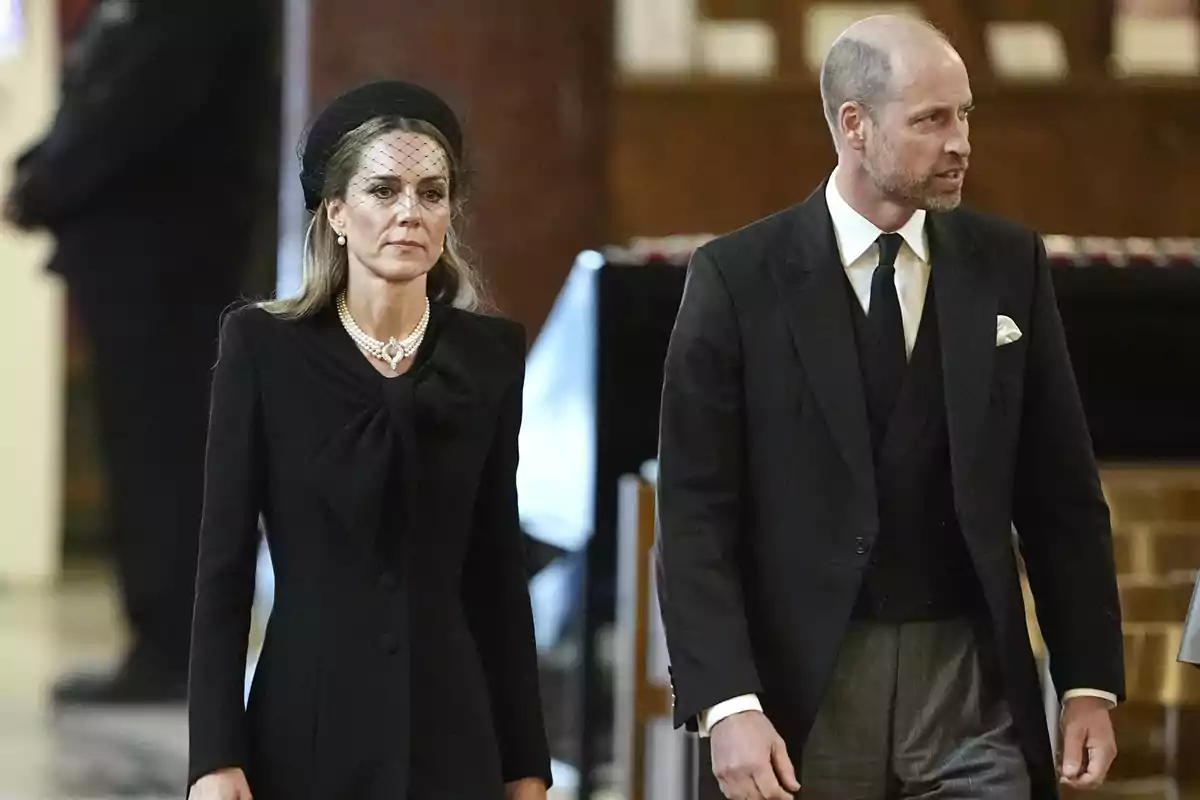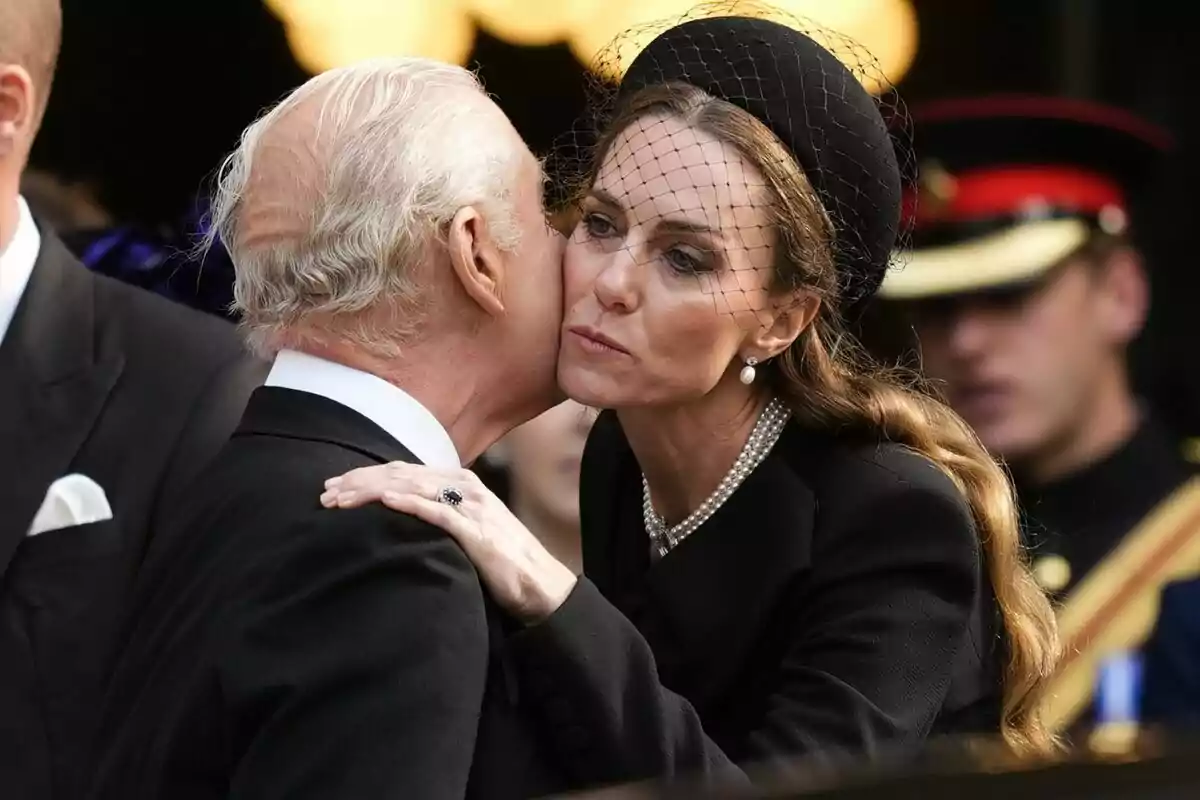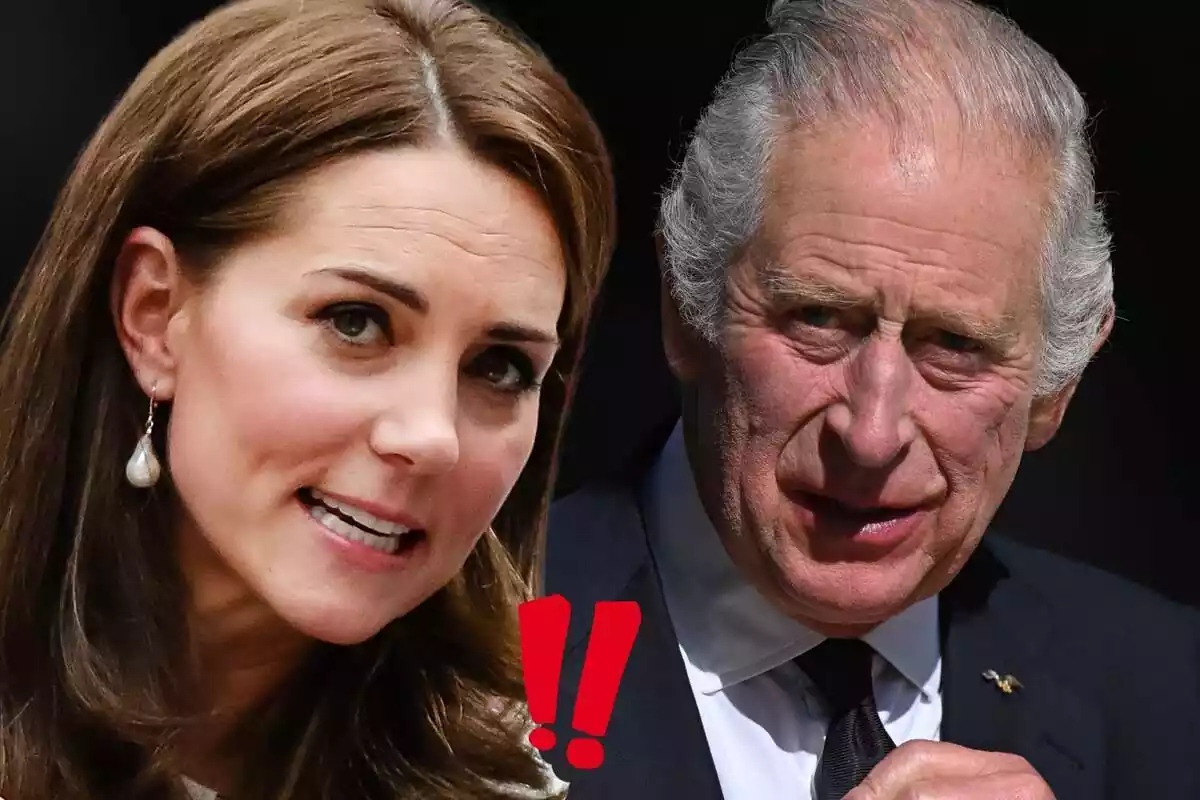The United Kingdom has experienced a day marked by solemnity and history with the farewell to the Duchess of Kent. The ceremony brought together members of the royal family and personalities connected to her social causes. Westminster Cathedral became the main stage for an event that left no one indifferent.
The absence of Queen Camilla, together with the presence of unexpected faces, drew the attention of attendees and the press. Emotions mixed with protocol in an event that, beyond the farewell, left gestures that are now part of social chronicles. Among them was one involving Kate Middleton and King Charles III.

A historic farewell at Westminster
The funeral of Katharine, Duchess of Kent, was an unprecedented event in the recent history of the British monarchy. For the first time in decades, a reigning monarch attended a Catholic mass on British soil. The ceremony was presided over by Cardinal Vincent Nichols and brought together much of the Windsor family.
The duchess's casket, who died at 92 years old, was transported from Kensington to the Catholic cathedral. During the vigil, the body rested in the Chapel of the Virgin Mary, thus fulfilling the wishes of the deceased. Her Catholic faith, assumed after her conversion in 1994, set the tone for the events.
Among the attendees were King Charles III, Prince William, Princess Anne, and Kate Middleton. The appearance of Prince Andrew alongside Sarah Ferguson was also surprising, despite the controversy that still surrounds him. The event, however, did not include Queen Camilla, who was suffering from acute sinusitis.

The gesture between Kate Middleton and Charles III
Amid the solemnity of the event, the Princess of Wales starred in an unexpected moment. During her encounter with the king, Kate Middleton showed an affectionate gesture toward her father-in-law that did not go unnoticed. The kiss she gave him reflected respect, affection, and the closeness between them.
The gesture, captured by cameras, became one of the most talked-about images of the day. In an environment marked by the rigidity of protocol, the princess's spontaneity added a human touch. For many, the scene symbolized family unity in complex times.
King Charles III's reaction was also notable, as he naturally received his daughter-in-law's gesture. British chronicles agree in noting that the relationship between them is currently very harmonious. In contrast to other family episodes, this detail conveyed stability and closeness.
The symbolism of the ceremony for the monarchy
Beyond the anecdotal, the funeral highlighted the historic role of the Duchess of Kent. Her conversion to Catholicism in the 1990s was seen as a brave gesture in an environment strongly linked to the Church of England. Her farewell, in the Catholic cathedral, reaffirmed that personal legacy.
The presence of key figures from the royal family reinforced the importance of the event for the institution. Camilla's absence, justified by health reasons, did not diminish the message of unity that was intended to be conveyed. The image of the Windsors together at such a moment sought to project strength to public opinion.
The gesture between Kate and Charles III adds to this context as a symbol of continuity. The monarchy, which has experienced recent turbulence, finds in these images an opportunity to strengthen its closeness with society. Westminster, once again, was a stage for history and tradition.

